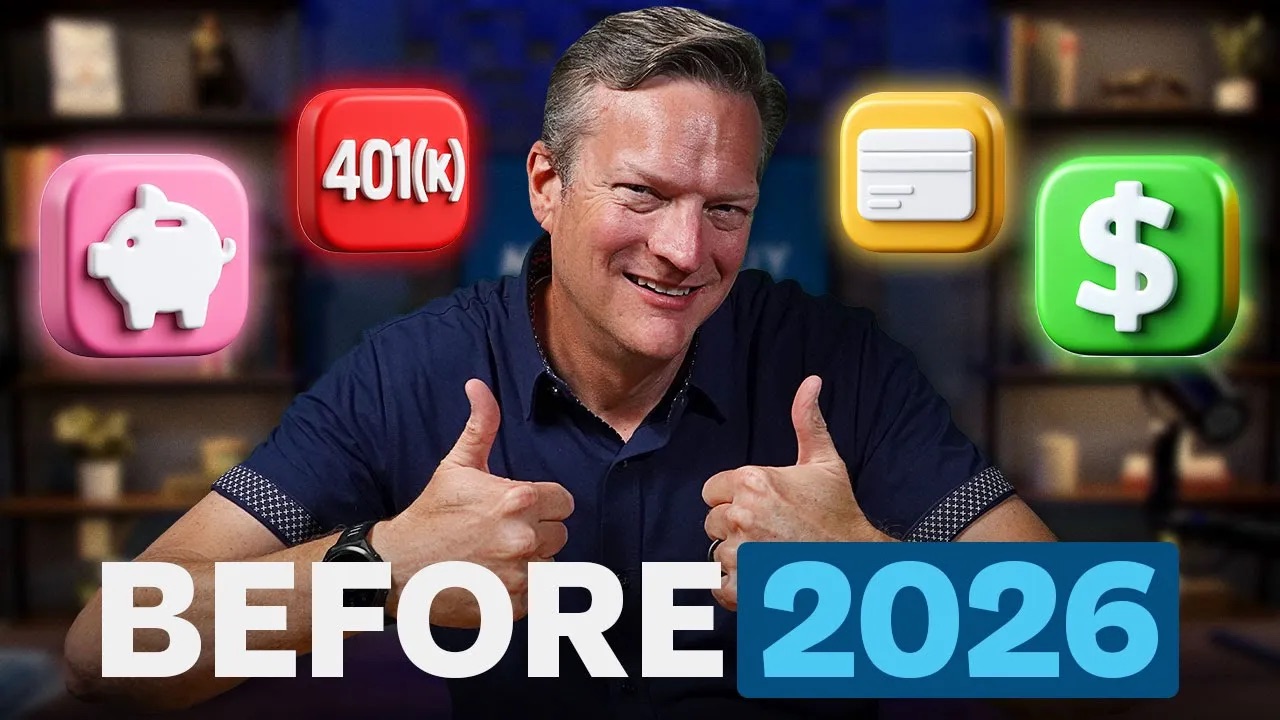Inflation can be a huge wealth killer. We’re going to talk about why, but before we do that, we got to set some groundwork. Why is it so significant to talk about inflation right now, Brian?
Well, we just came out of a high inflationary period. I think there’s always a little shock and awe after you live through an inflationary period. I’m old enough to have made it through the 70s and early 80s, and here we are now, and I’m like, “Whoa, it is just like I recalled.” The frustration is that you kind of recall what things cost beforehand, but now you see new prices, and there’s a part of your brain that’s like, “It’s going to go back; it’s going to go back.” But then, because you’ve lived through it, you recognize, “Nope, there’s a good chance that a lot of what we experience is here to stay.”
When you look at this data from the Federal Reserve from 2005 until now, you can see that year-over-year it kind of hovers around that 3 to 4% range. However, over the past few years, it got as high as 9%, and even though it has settled back down now, year over year, it’s only up about 3% or so. When you think about that 9% run-up that we saw, we are still paying for that. That’s one of the reasons why it’s such a significant killer because prices go up, but it does not mean that they necessarily come right back down.
We’ve done so many inflation slides in the past where we compare what things cost in 1980 with what they cost in 2015. What’s really wild about this is we did what things cost then versus what they cost now, but we just went to 2020. It was only a few years ago. If you think about the price of a gallon of gas in 2020, it was $2.17. Compare that now to $3.36, the national average—that’s a 55% increase in just a matter of four years. If you look at the cost of a gallon of milk, it went from $2.96 in 2020 to now $3.83, a 29% increase. For a dozen eggs, it goes from $1.51 in 2020 to now a 99% increase in 2024 to $3 for a dozen eggs. Just because inflation has come down, prices have not come down proportionally.
Well, this is just covering the cost of living things for basic consumption—food, gas—but it’s worse than that. It’s actually some of your big expenses, like housing and vehicles, that have also been impacted by this inflation.
The stuff that we spend a lot of money on, we’re having to spend a lot more money on. The first one you mentioned, Brian, was housing. When we look at home affordability, we pulled this data from 2014 until now. You can see that when you think about the percentage of household income required to pay for housing on average in America, it usually was right around 25%. That’s one of the reasons we have our 25% housing rule. Yet, as we came through the pandemic in 2021 and 2022, you can see now that the share of income required for housing is up above 40% right now. If you have 40% of your money going towards housing, it does not leave a whole lot for everything else.
I think that’s why it’s hard to discuss this. When we give our 25% guidance, people think we’ve lost touch with reality. You can see in the not-too-distant past it was actually pretty normal to have housing at 25%, and I even feel it when I talk to people and give this guidance. It hurts to share some of these guidelines that historically have been great, but right now they are seeming somewhat disconnected just because housing costs are running so high.
Before we wallow in all the bad news, let’s talk about how we can actually do this better.
The first thing is to have financial guardrails in place to ensure you’re not spending more than you can afford. If we’re talking about housing specifically, there are some things you need to think through before you buy a house. We actually have an entire hub out there that you can check out at money.com/resources. But here are some house-buying rules: Before you buy a house, can you say pretty clearly, “I’m going to be in this house for at least five to seven years?” Do you have a down payment saved up? If it’s a first-time home, do you have at least 3 to 5% saved up? If you’re upgrading or changing to a second home, have you saved up 20% down? Have you done the math to figure out that even with interest rates where they are right now, your total housing cost will be less than 25% of your gross income? If you can answer those questions affirmatively, then there’s a good chance you can get into a house that you can afford and that won’t derail your finances.
I want to tell everybody who’s watching this, you see this and you might think, “Man, they just showed that slide where affordability is running away from me.” I think a lot of people, especially if you originally were in the market for a house in 2020 or 2021 but felt like it completely ran from you because of inflation, you still have some trauma where you’re thinking this thing is still running away from you. I want to caution you against getting stuck in the mindset that housing is going to continue to go up 10, 15, or 20% per year. That is highly unusual. We came through that inflationary period where, yes, from 2020 to 2023, houses did go up between 40 to 60%, depending upon the market. But that does not mean that it will continue on. I’m not saying that housing is going down, but I’m just saying that it’s more likely to align with what inflation is doing, which is more in line with 3 to 4% per year. So don’t feel like you’re being squeezed into making a panicked, desperate decision to the detriment of your financial future.
Don’t get in a hurry, and it’s not just housing where you need to have that guardrail in place. You want to make sure you also have guardrails in place for other big expenses like automobiles. That’s why we have our 20/3/8 rule when it comes time to buy a car, whether you’re buying new or used. We want you to put 20% down, finance for no more than three years (36 months), and keep the total of all your auto payments from exceeding 8% of your gross income. If you can stay within those thresholds, stay within those guardrails, there’s a good chance you’ll prevent yourself from getting into an automobile that you can’t afford.
Two other small caveats: If you buy a luxury car, you need to be able to pay it off in one year, and make sure that your monthly car payment is less than your monthly investment contributions. If that’s not the case, there’s a really good chance you’re doing it wrong.
I also want to encourage people to think outside the box, especially with this housing market.
One of the big things I’m thinking that a lot of people, if you’re having trouble with affordability, there is always house hacking—whether that means taking on roommates or buying a house that allows you to rent out a portion of it. There are thinking-outside-of-the-box opportunities where maybe you can work your way through this unique marketplace.
Again, we’re talking about how to not let inflation be a wealth killer for you. One of the things that’s true when it comes to buying large assets is that reversion to the mean is a thing. We’ve seen this in the automobile marketplace—prices on new and used cars are not as high as they were a couple of years ago; they’ve started to come back down a touch. While this hasn’t happened en masse with housing yet, there’s a chance that it could happen. So make sure that you’re paying attention. If right now making these decisions to purchase large assets doesn’t make sense for you financially, perhaps waiting for things to revert to the mean isn’t the worst solution, at least in this unique time that we’re in.
I want to make sure we’re clear—just because we talk about reversion to the mean, does that mean we think housing prices will go down? Not necessarily. No, I think what it could mean, and you kind of allude to this, is to be patient. Maybe your opportunity will come from the fact that you’re going to make more money. If you have high inflation that’s caused higher housing prices, it also means that the higher inflation might cause your wages to go up a little bit faster, or even interest rates to come down. Interest rates coming down would help out with affordability. Don’t feel like you have to force this—like I said, time is not necessarily working against you like it was in 2021 and 2022. I’d rather this be a measure-twice-cut-once situation, instead of making a desperate decision where you’re house-rich but life-poor and to the detriment of your future financial self.













